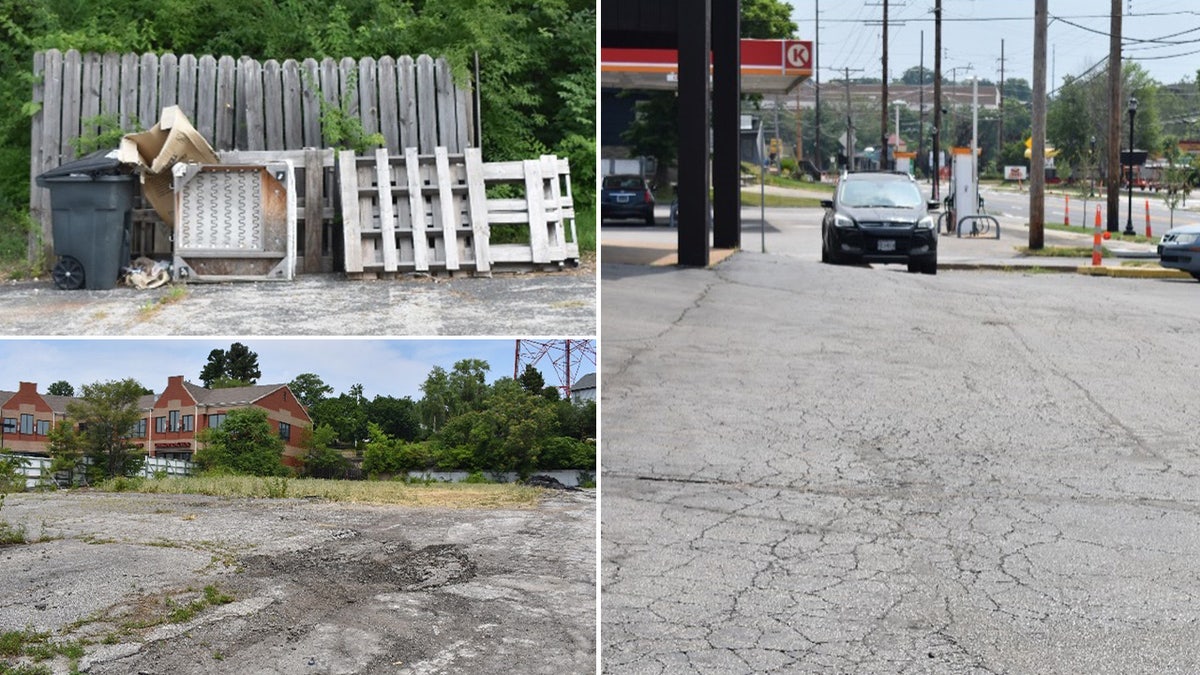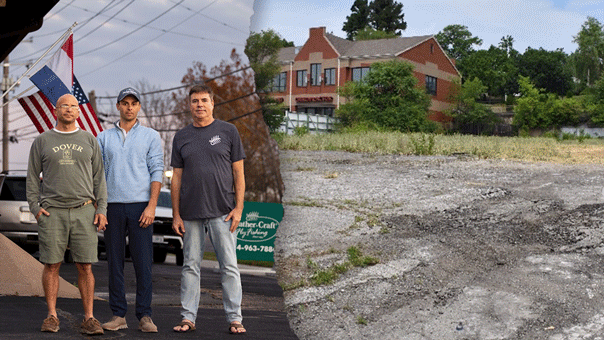Small business owners are taking a city in Missouri to court this week over officials’ attempt to use eminent domain to take their property and give it to a private developer.
“We’re not in the game of musical chairs of property in this country,” said Martin George, one of the property owners suing the city of Brentwood, Missouri.
George and other business owners argue officials used a vague definition of blight to secure a $436 million development deal that seeks to transform their property into apartments, stores, a hotel, restaurants and more.
JUSTICE DEPARTMENT HALTS DEA’S RANDOM SEARCHES OF AIRPORT TRAVELERS AFTER REPORT FINDS ‘SERIOUS CONCERNS’
“These properties are not unsanitary. They’re not deteriorating. They’re not a menace to public health,” Institute for Justice attorney Bobbi Taylor said during a press conference Monday ahead of the trial in St. Louis County Circuit Court.
The Institute for Justice, a nonprofit civil liberties law firm, argues Brentwood used minor complaints like cracks in paint and building age as a pretext to declare an entire stretch of Manchester Road blighted and skirt state eminent domain restrictions.
“If that’s allowed to stand as the definition of blight, that basically means that the government can take any property using eminent domain solely because it’s a little older, or it may need a fresh coat of paint,” Taylor said.
The 2005 Supreme Court case Kelo v. New London paved the way for cities like Brentwood to seize property in the name of economic development. In Kelo, a Connecticut city wanted to seize homes and sell the property to developers to build new commercial and residential complexes. The justices ruled 5-4 that the seizure qualified as “public use” because the city was following an economic development plan.
The ruling triggered a nationwide backlash and most states strengthened protections for property owners, including Missouri, where lawmakers passed a bill in 2006 specifying that property can’t be seized solely for economic development.
SMALL BUSINESSES ACCUSE MISSOURI CITY OF FORCING THEM OUT WITH BASELESS BLIGHT LABEL TO SCORE LUCRATIVE DEAL
But Missouri and other states included a critical carve-out. Cities could still seize blighted areas, defined by Missouri law as having “insanitary or unsafe conditions, deterioration of site improvements” or other factors that present “economic or social liability.”
That broad definition can be used to condemn entire neighborhoods, even if individual homes or other properties are in spectacular condition, according to the state.
The Institute for Justice argued on behalf of homeowners in the Kelo case, but lost. The proposed development that sparked the legal battle was never built.
Brentwood officials originally declared a stretch of Manchester Road blighted in 2018 after significant flooding problems. The city then launched a multi-million-dollar flood mitigation project and made significant improvements to the area, according to business owners. Yet, in 2023, officials approved a $436 million redevelopment deal that required a new blight designation.
“The entire area has been deemed blighted, and it’s not,” Amy Stanford, the co-owner of Time For Dinner on Manchester Road, previously told Fox News Digital. “We are functioning, growing and a great business. How could we be blighted?”
A spokesperson for the city did not respond to a request for comment.

“It’s bogus,” Bob Story, who runs a fly-fishing business located on Manchester Road since 1989, told Fox News Digital last year. “This area looks exactly like every other area around here in Brentwood.” Story added, “It’s all about the tax revenue.”
“Without the power of eminent domain, there’s no redevelopment,” IJ attorney Bob Belden said Monday. “No redevelopment, you don’t get your Ritz-Carlton, and you’re stuck with hard-working business owners like this.”
The project has changed hands since its approval. The original developer, Green Street, was mired in controversy, allegedly owing the city of St. Louis nearly $800,000 in delinquent property taxes, according to local media reports. Several contractors also sued the company, accusing Green Street of not paying them.
A few Green Street employees left the developer and started Halo Real Estate Ventures, which has taken over the Brentwood project, St. Louis Magazine reported.

Representatives of Halo did not respond to a request for comment Monday, but CEO Joel Oliver — who founded the company after leaving Green Street — told St. Louis Magazine last year that he wasn’t worried about the suit.
“No matter what you’re doing, where you’re trying to do it, change can be scary for folks. It’s not uncommon to have to address people’s concerns,” Oliver said.
The trial began Monday in St. Louis County Circuit Court and is scheduled to last four days.
Read the full article here





